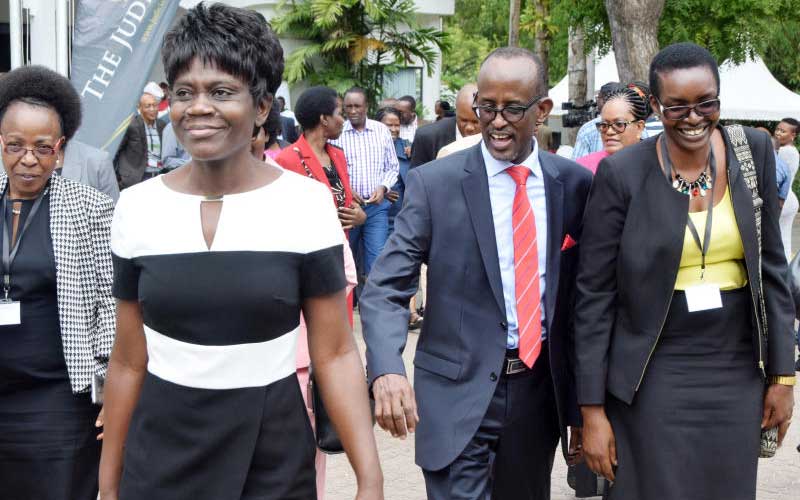×
The Standard e-Paper
Home To Bold Columnists

Lady Justice Grace Nzioka (in black and white dress). [File, Standard]
A judge has censured the government for the rising number of unpaid contracts that end up costing taxpayers millions of shillings in penalties.